Getting your Trinity Audio player ready...
Prime Minister Benjamin Netanyahu appeared in Jerusalem District Court on Monday morning for the start of the evidentiary phase of his corruption trial, one year and four months after Attorney General Avichai Mandelblit announced charges of bribery, fraud and breach of trust against him.
In her opening statement Monday, the trial's chief prosecutor Liat Ben-Ari accused the prime minister of using his political power to receive favors in order to promote his personal affairs and ensure the continuation of his rule.
7 View gallery
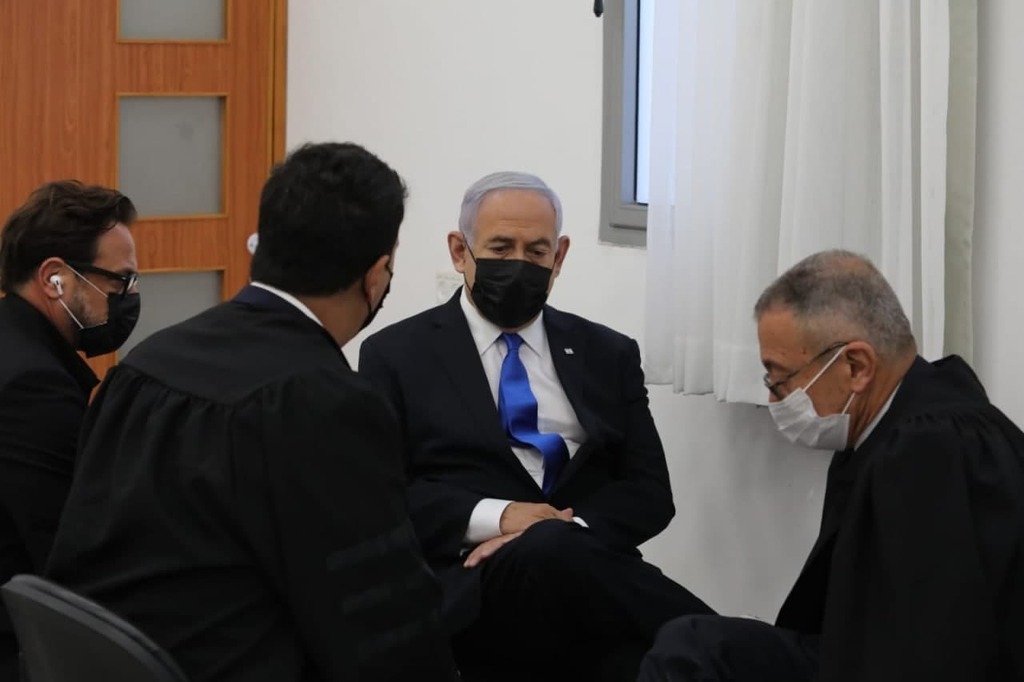

Prime Minister Benjamin speaks to his legal team as he appears in Jerusalem District Court court in on Monday
(Photo: Oren Ben Hakoon)
"The relationship between Netanyahu and the defendants became currency, something that could be traded," Ben-Ari said in presenting the first set of charges in what is known as Case 4000.
"This currency could distort a public servant's judgment," said Ben-Ari, who has received personal protection following threats by Netanyahu supporters.
Ben-Ari said the indictments were on based on both concrete and circumstantial evidence and include recordings of conversations and text messages that would all prove the charges against him.
Everyone is equal before the law, Ben-Ari said.
7 View gallery
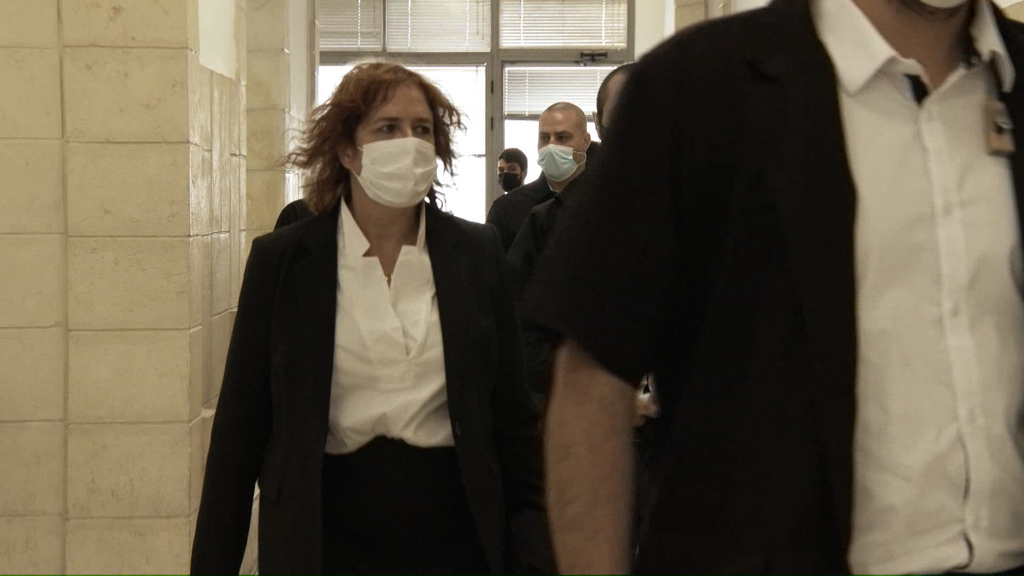

Chief prosecutor in the case Liat Ben-Ari arrives in court on Monday
(Photo: Nivran Broadcast)
Netanyahu's lawyers sought to make a rebuttal but were cut off by Judge Rivka Friedman-Feldman, who said they had already responded to the charges earlier in the trial.
The judge then ordered a brief recess, during which Netanyahu left the courthouse, having obtained permission to absent himself from the court during the testimony of the first witness for the prosecution.
The witness, Ilan Yeshua, is the former CEO of the Walla news outlet that is at the center of Case 4000.
Former Walla owner Shaul Elovitch is accused with Netanyahu of allegedly conspiring to provide the prime minister with positive news coverage in return for favorable legislation for the Bezeq telecoms giant that he also ran at the time.
7 View gallery
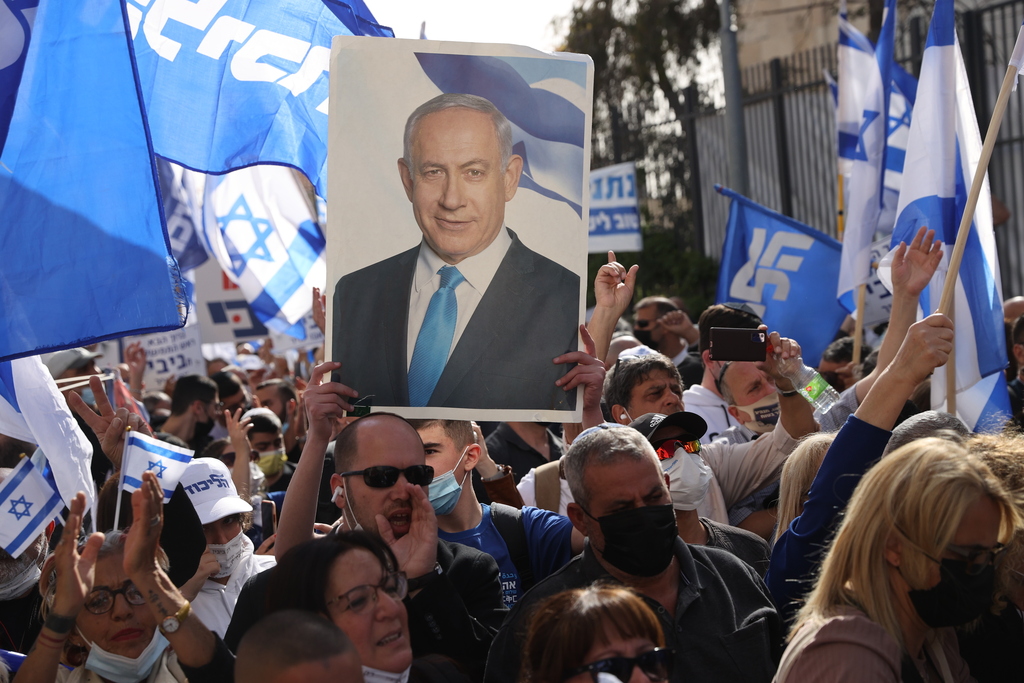

Supporters of Prime Minister Benjamin Netanyahu rally outside Jerusalem District Court for the opening of the evidentiary stage of his corruption trial, April 5, 2021
(Photo: Alex Kolomoisky)
According to the charges, Elovitch and his wife Iris, a co-defendant, "exerted heavy and continuous pressure" on Yeshua to change articles on the Walla website to meet the demands of Netanyahu and his family.
Taking the stand, Yeshua said he regularly received requests from Elovitch and aides to the prime minister, asking him to smear the prime minister's political opponents and give them pejorative nicknames. He then passed along the requests to the site's top editors.
Naftali Bennett, a former Netanyahu ally turned rival, was known as "the naughty religious one," and former Finance Minister Moshe Kahlon, who is of North African descent, was called "smiley" and "the Arab."
The explanation he was given by the couple? "That's what the prime minister wanted," he said.
He said the pressure went on "for hours on end" over several years, adding that the Elotviches chose photos, headlines, word choice and other content.
7 View gallery
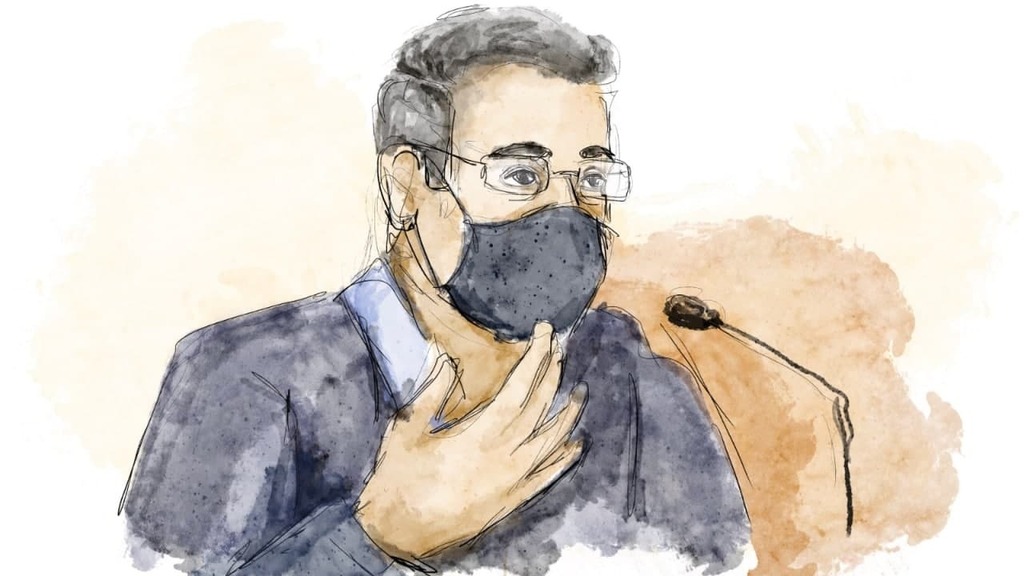

An artist's rendition of Ilan Yeshua testifying on Monday
(Illustration: Biana Zakutnik)
Yeshua said he never spoke directly to Netanyahu, and that requests also came from intermediaries, including former Netanyahu aide Nir Hefetz, who has turned state's witness and is also expected to testify against the prime minister.
"It was clear that I needed to comply with Nir's requests to put up positive articles, and remove negative ones," Yeshua said.
He said his staff was furious about the pressure and one editor even nicknamed the prime minister "Kim," after the North Korean dictator Kim Jong Un.
He said Shaul Elovitch referred to Netanyahu as "the big guy," and would also show him text messages from the prime minister's son, Yair, asking for articles to be changed or taken down.
At one point in the proceedings, Iris Elovitch screamed out: "How much can you lie?"
Ahead of the prime minister's arrival, the East Jerusalem courthouse was surrounded by heavy security with police shutting down the area to traffic.
7 View gallery
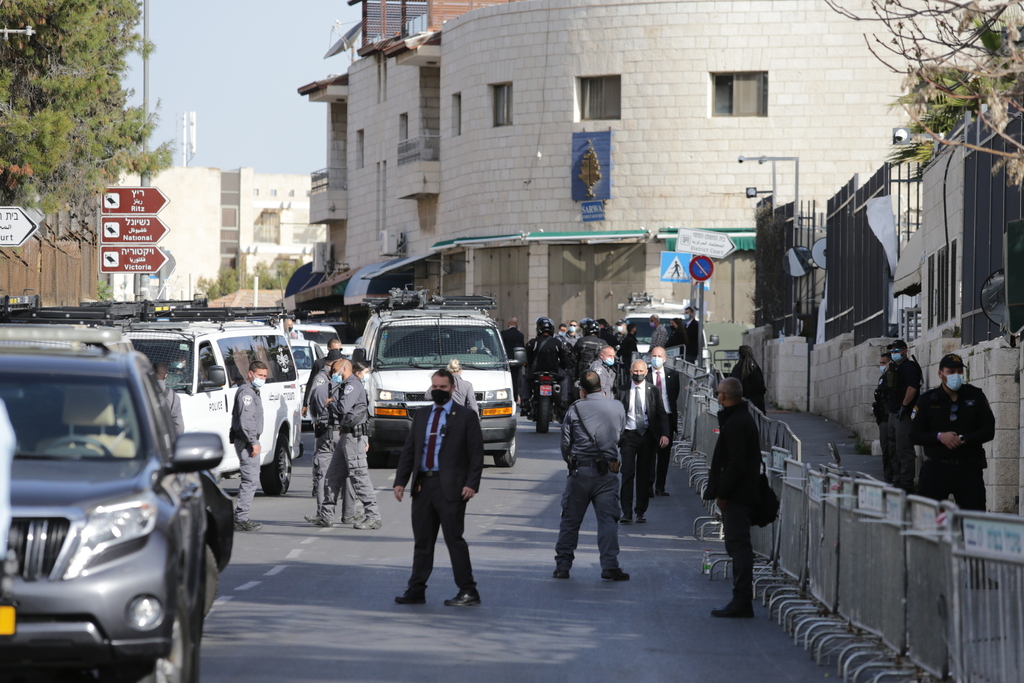

Security forces outside Jerusalem District Court as the evidentiary phase of Benjamin Netanyahu's corruption trial got underway Monday
(Photo: Alex Kolomoisky)
The prime minister was driven directly into an underground car park away from the throngs of reporters, protesters and counter-protesters stationed outside.
Netanyahu, who rejects the charges as part of a witch hunt to topple him, was greeted at the heavily guarded courthouse by supporters who gathered in a show of solidarity with the long-term leader.
He was also met by opponents who demand the removal of a prime minister they say cannot lead the country while under indictment.
7 View gallery
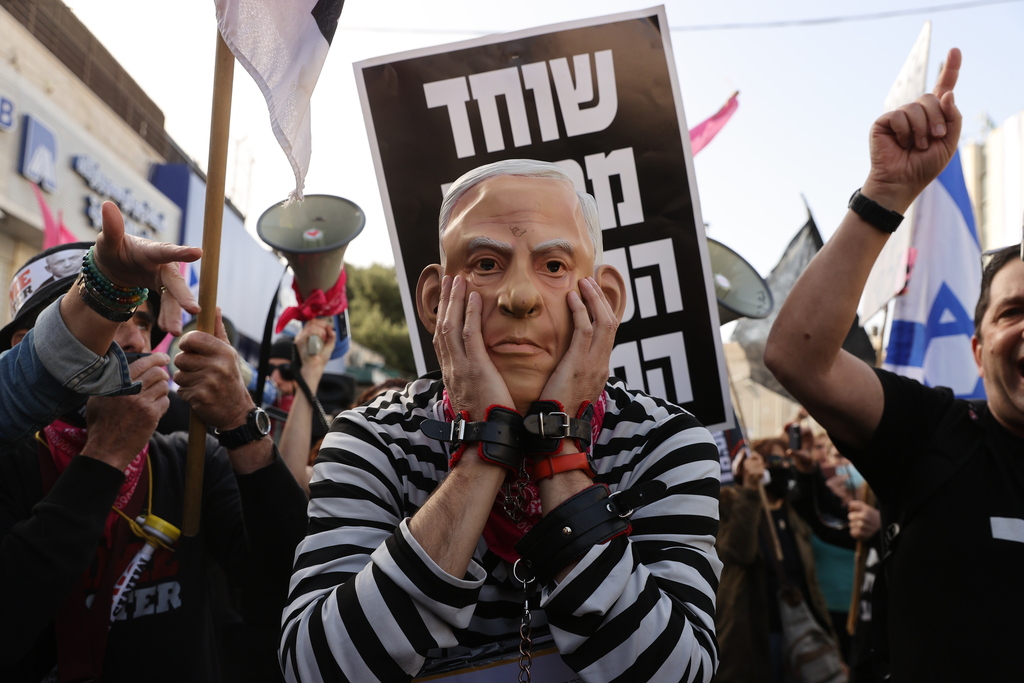

Opponents of Prime Minister Benjamin Netanyahu protest outside Jerusalem District Court for the opening of the evidentiary stage of his corruption trial, April 5, 2021
(Photo: Alex Kolomoisky)
Across town, another process was getting underway as President Reuven Rivlin began consultations with political leaders on recommendations for the next prime minister following the March 23 elections, Israel's fourth in two years.
Netanyahu is determined to form the next government with an eye on judicial reforms that could render his trial null and void.
7 View gallery
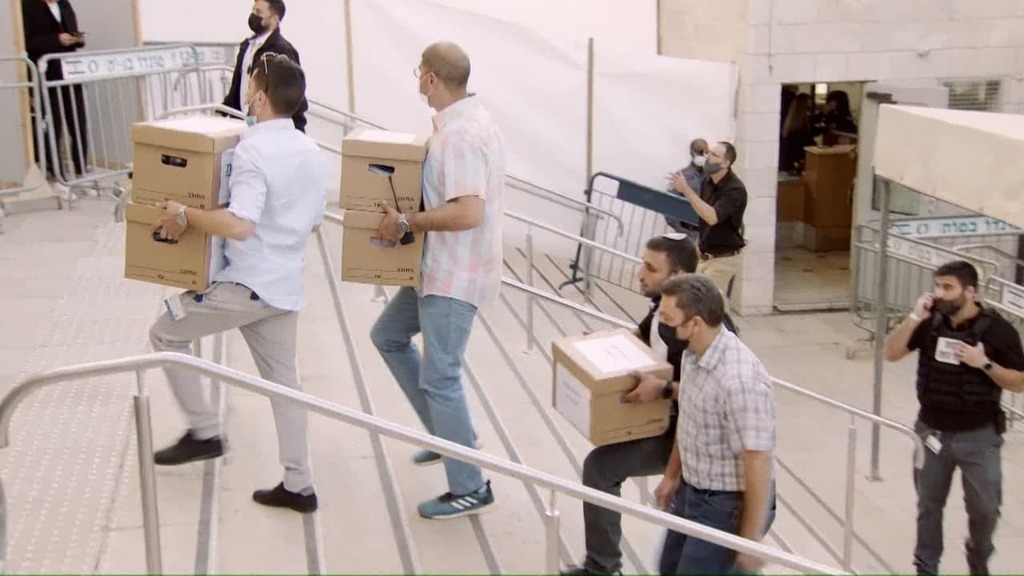

Boxes containing prosecution files are taken into the courthouse for the opening of the evidentiary stage of Benjamin Netanyahu's corruption trial, April 5, 2021
(Photo: Nivran Broadcast)
Also present in court was Arnon Mozes, the owner of the Yedioth Ahronoth group that includes Ynet, who is accused of bribery in Case 2000 for allegedly conspiring to help Netanyahu secure his position as prime minister through positive coverage in the media outlets he owns.
In return, the prime minister would allegedly aid Mozes to promote Yedioth's financial interests by initiating and supporting moves to weaken rival newspaper Israel Hayom, which was founded by Netanyahu's late backer Sheldon Adelson.
First published: 09:03, 04.05.21

